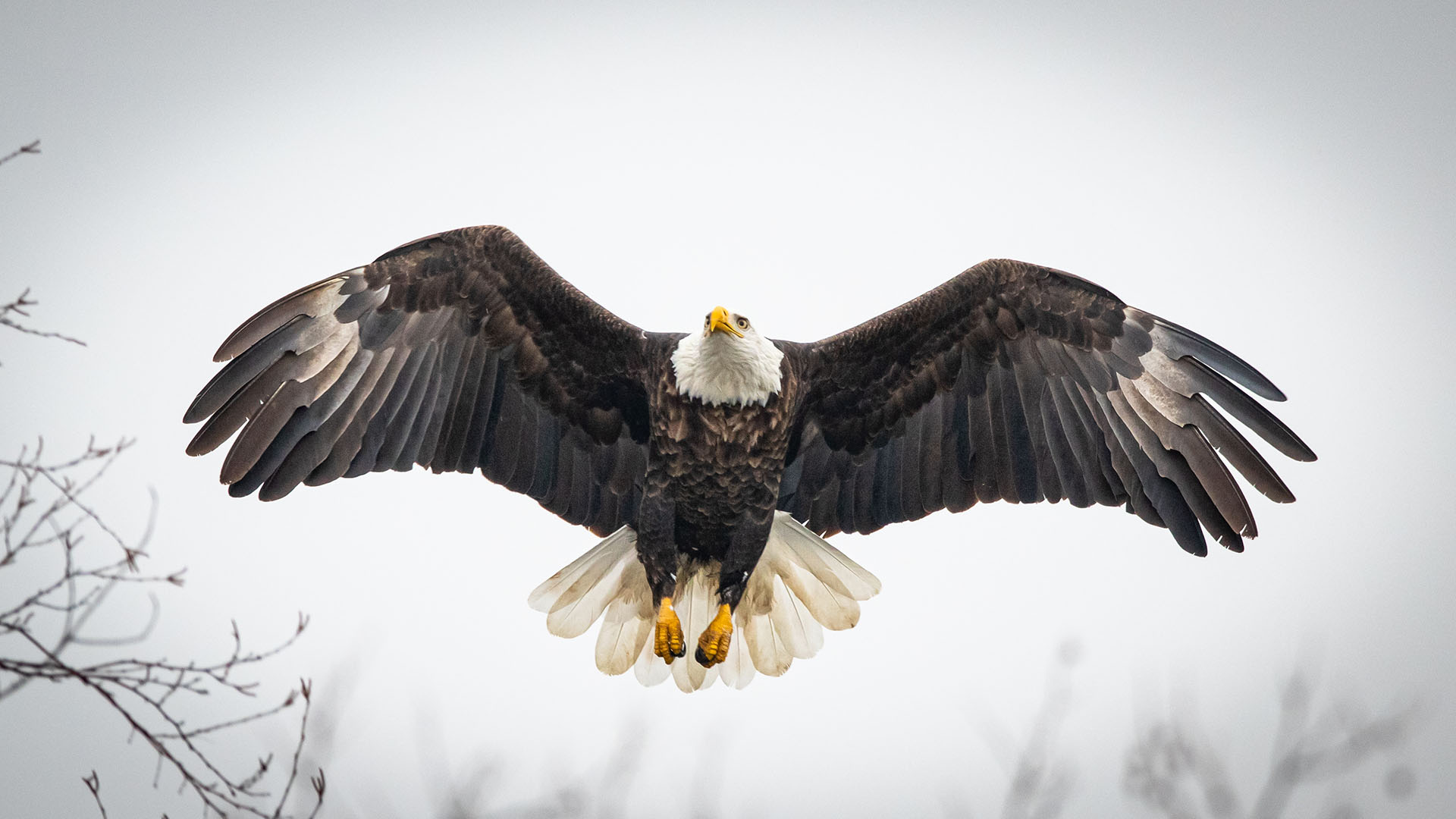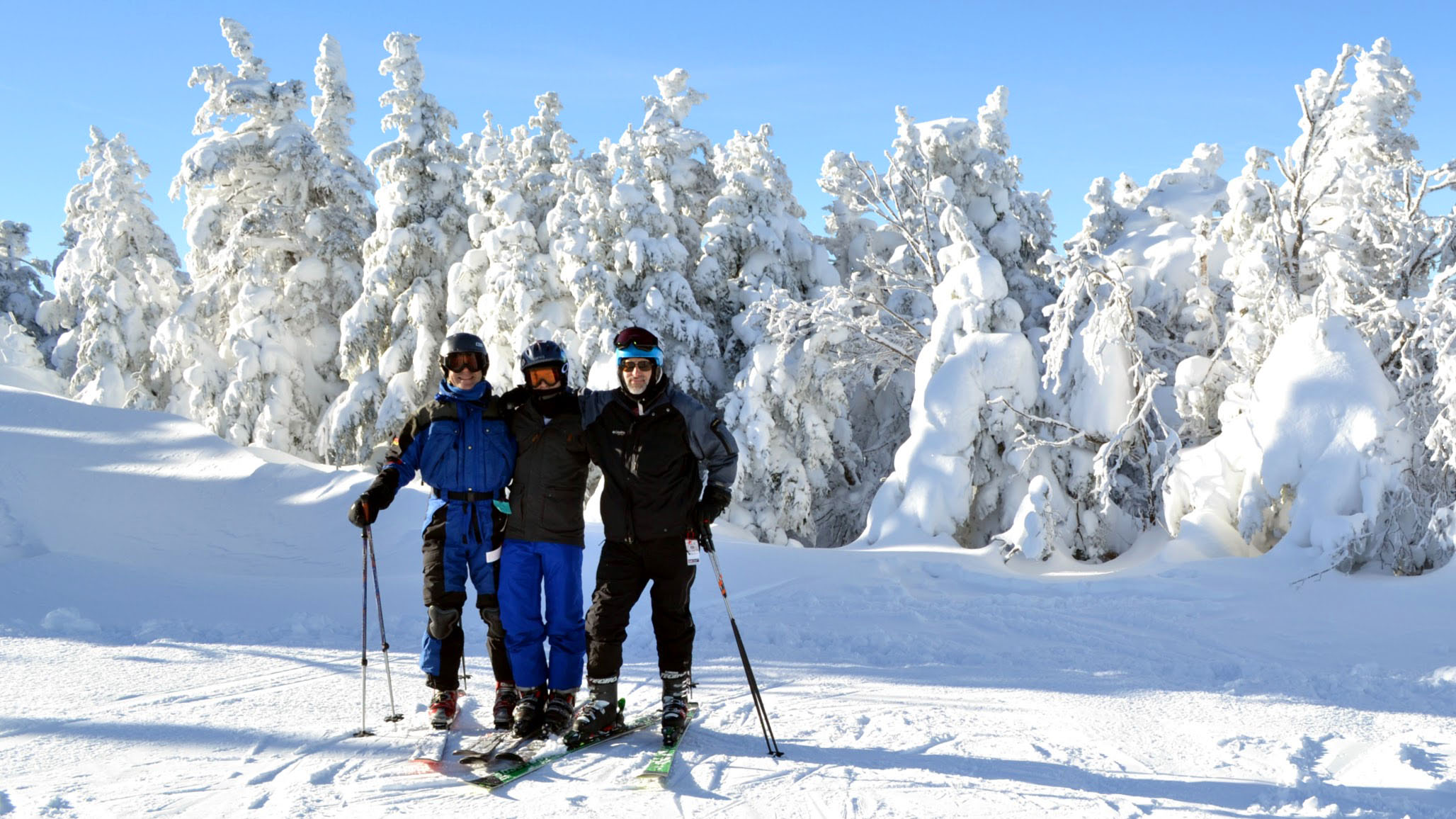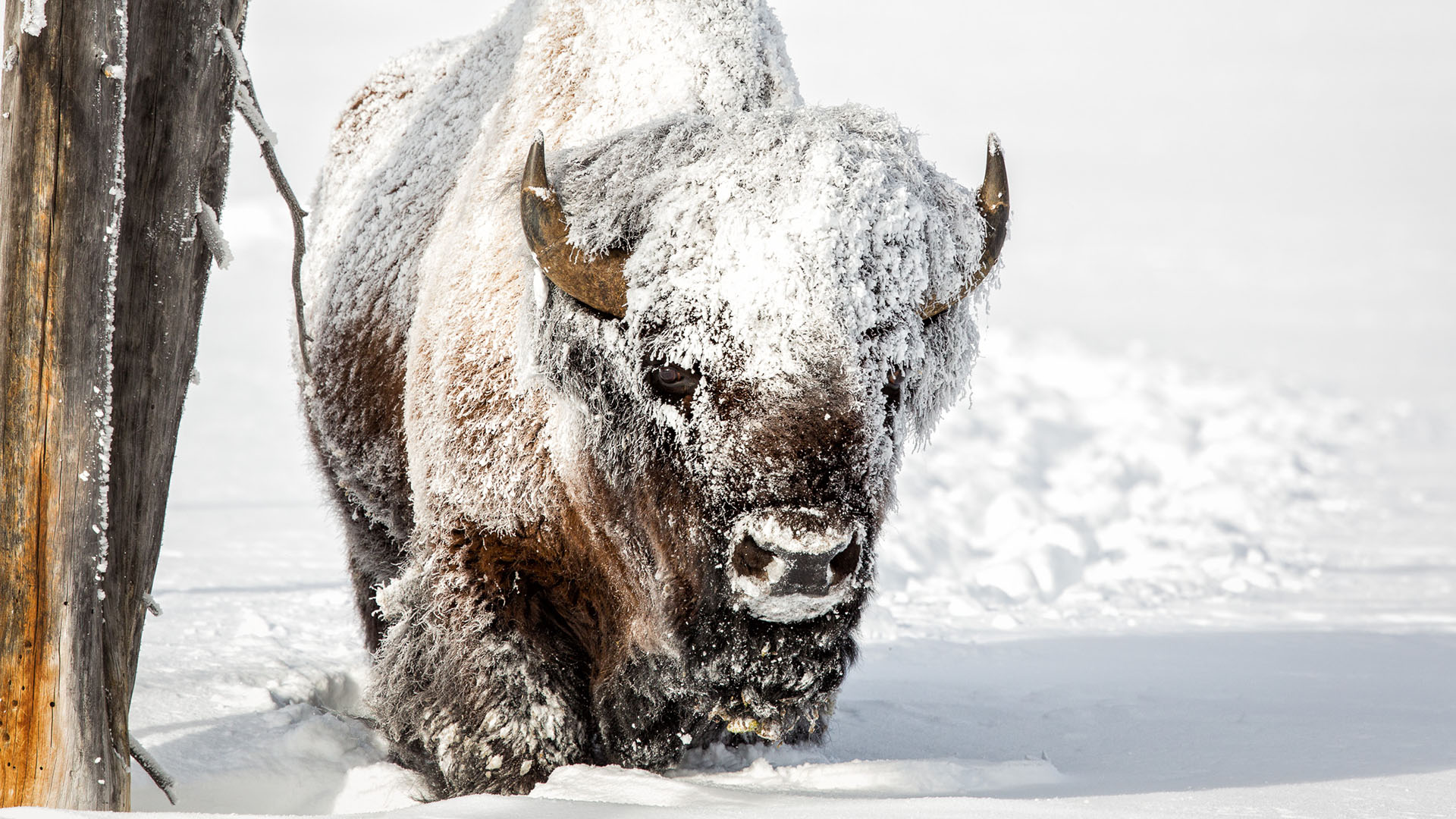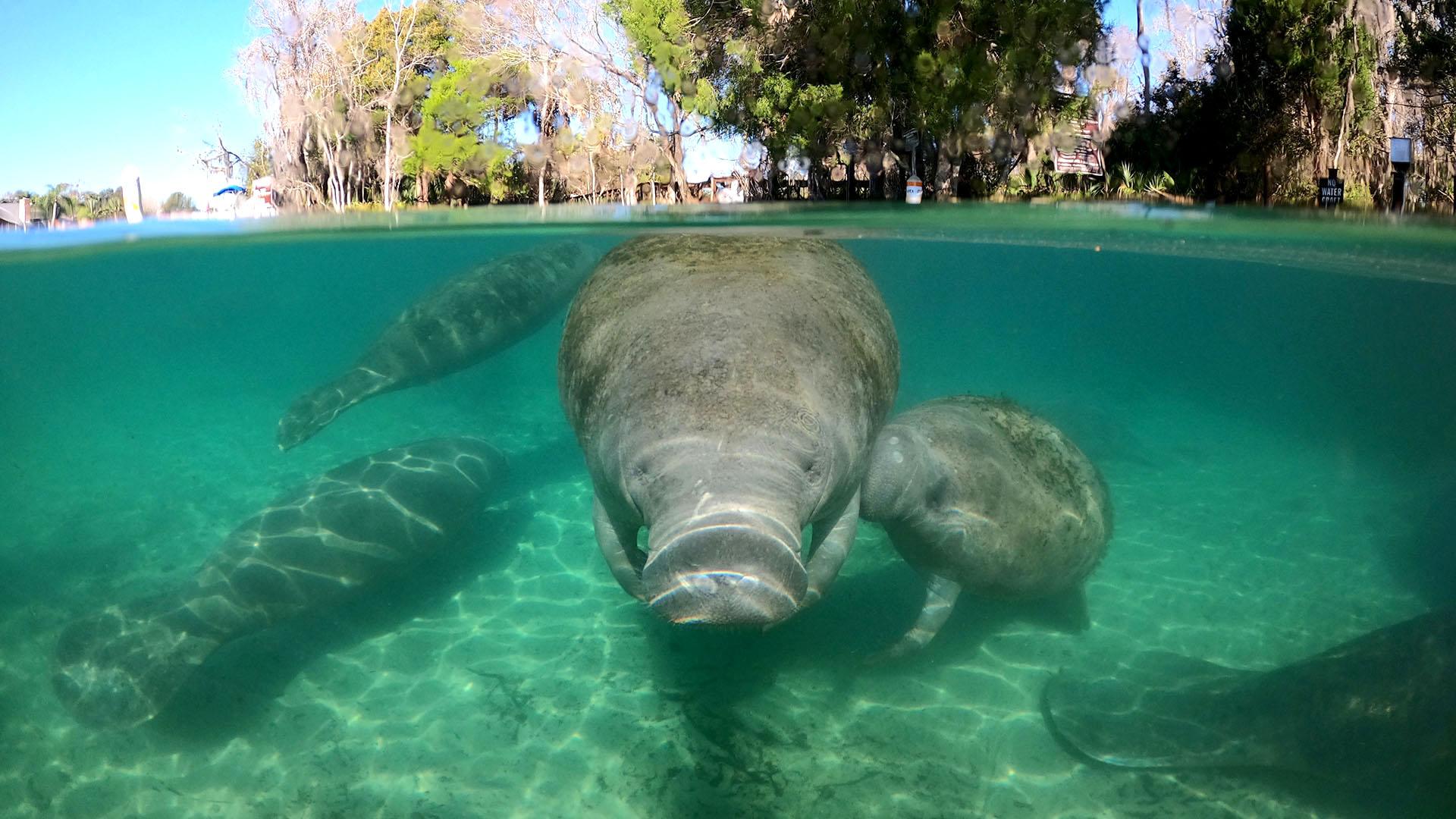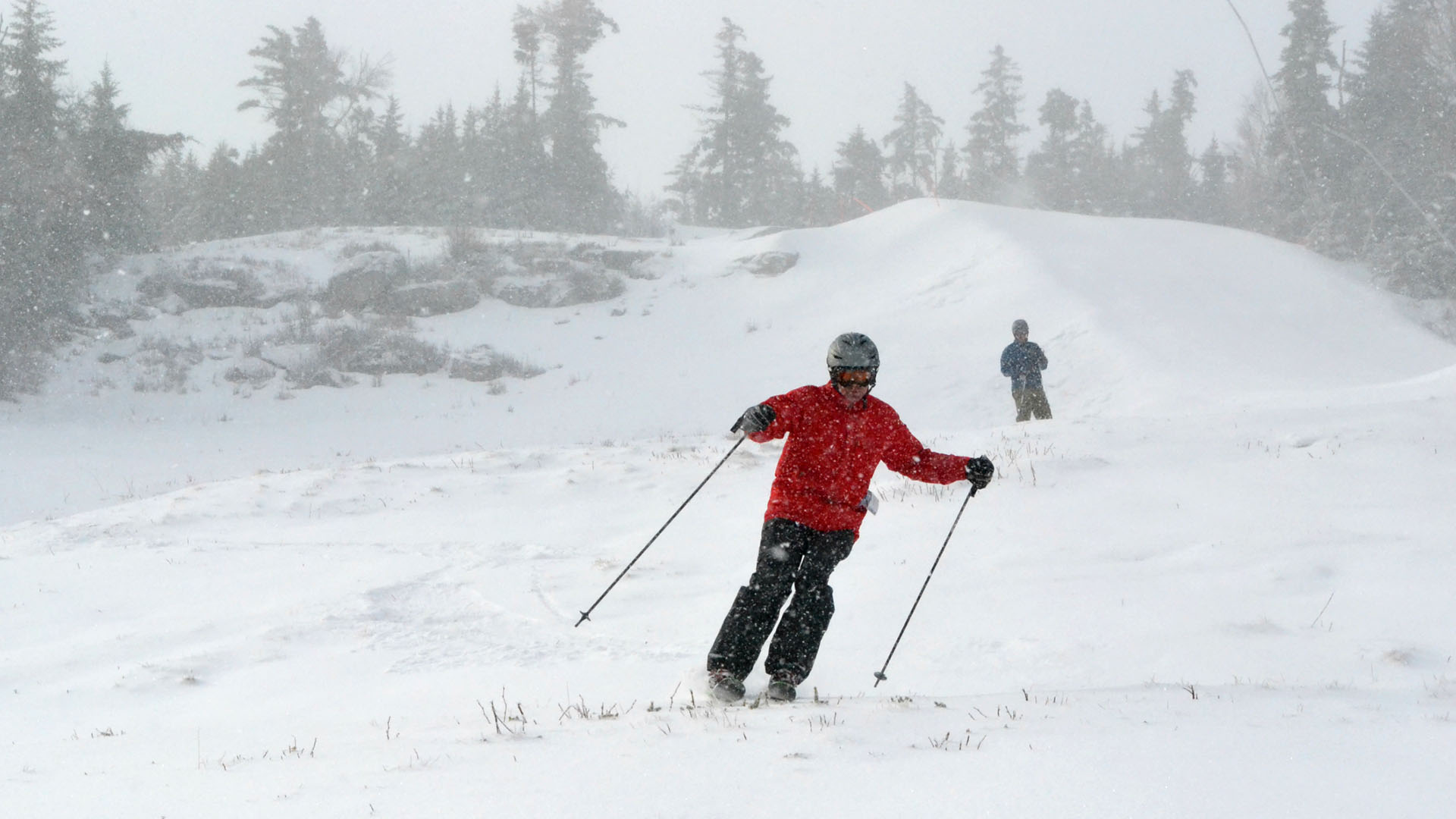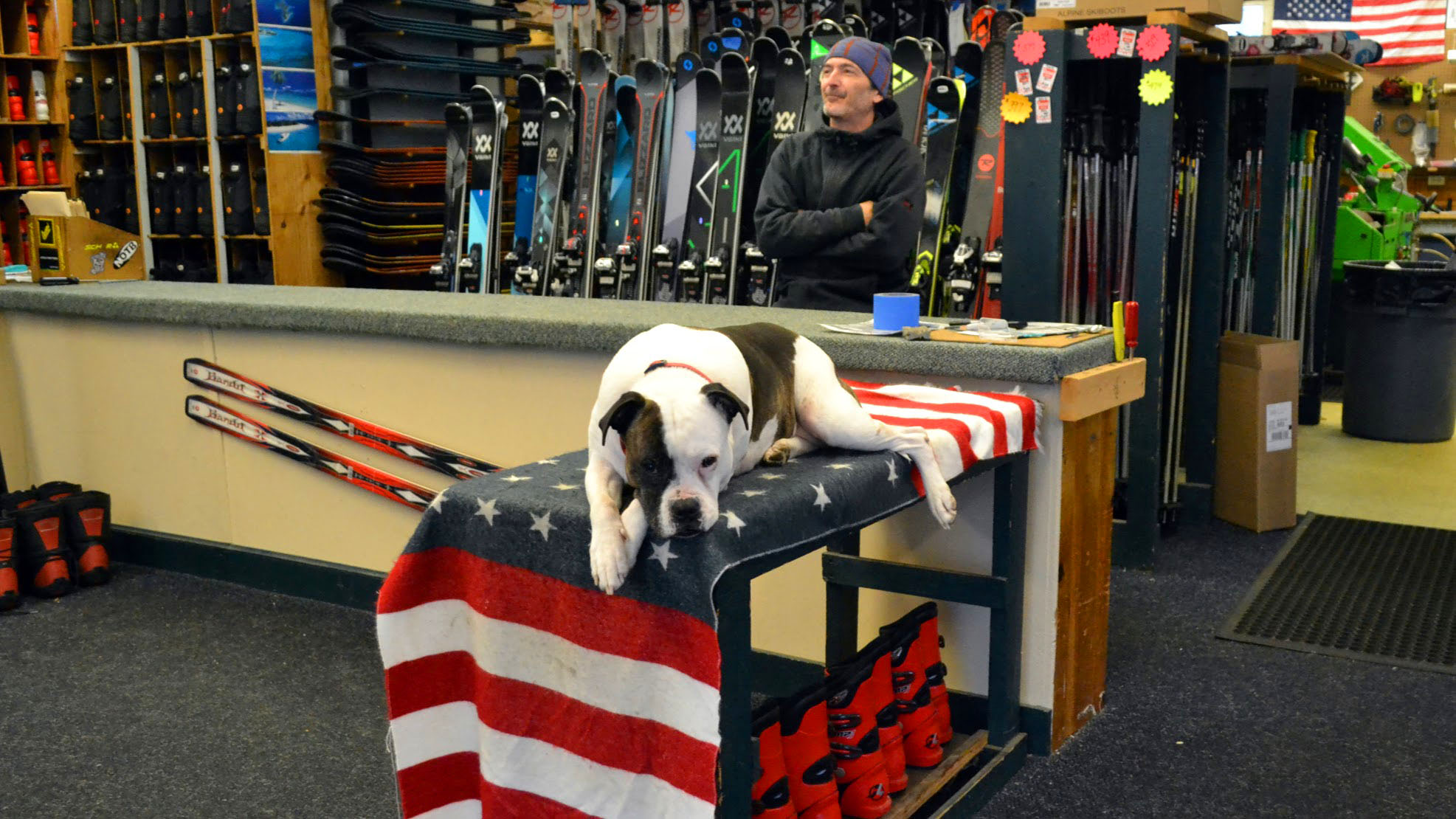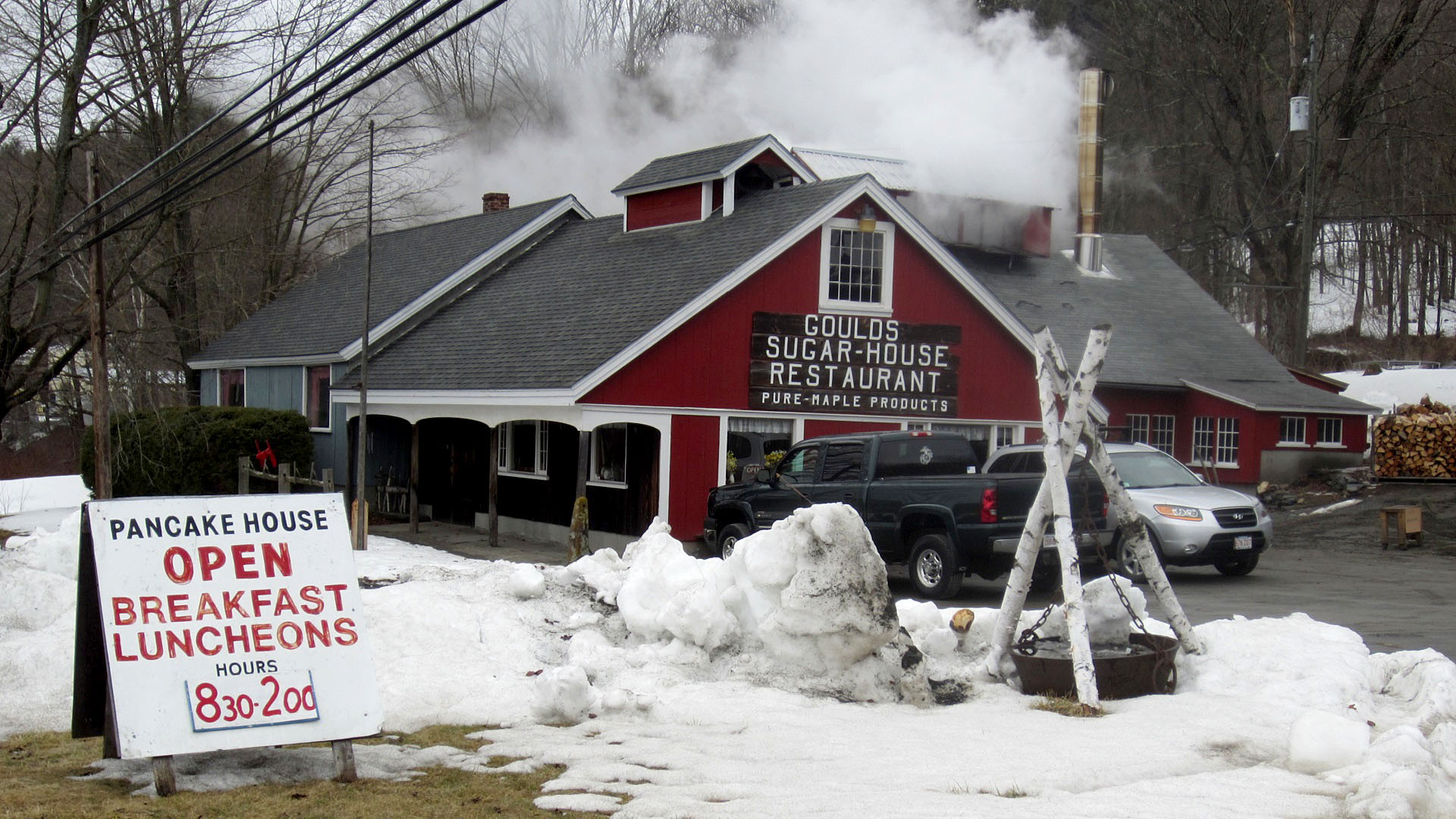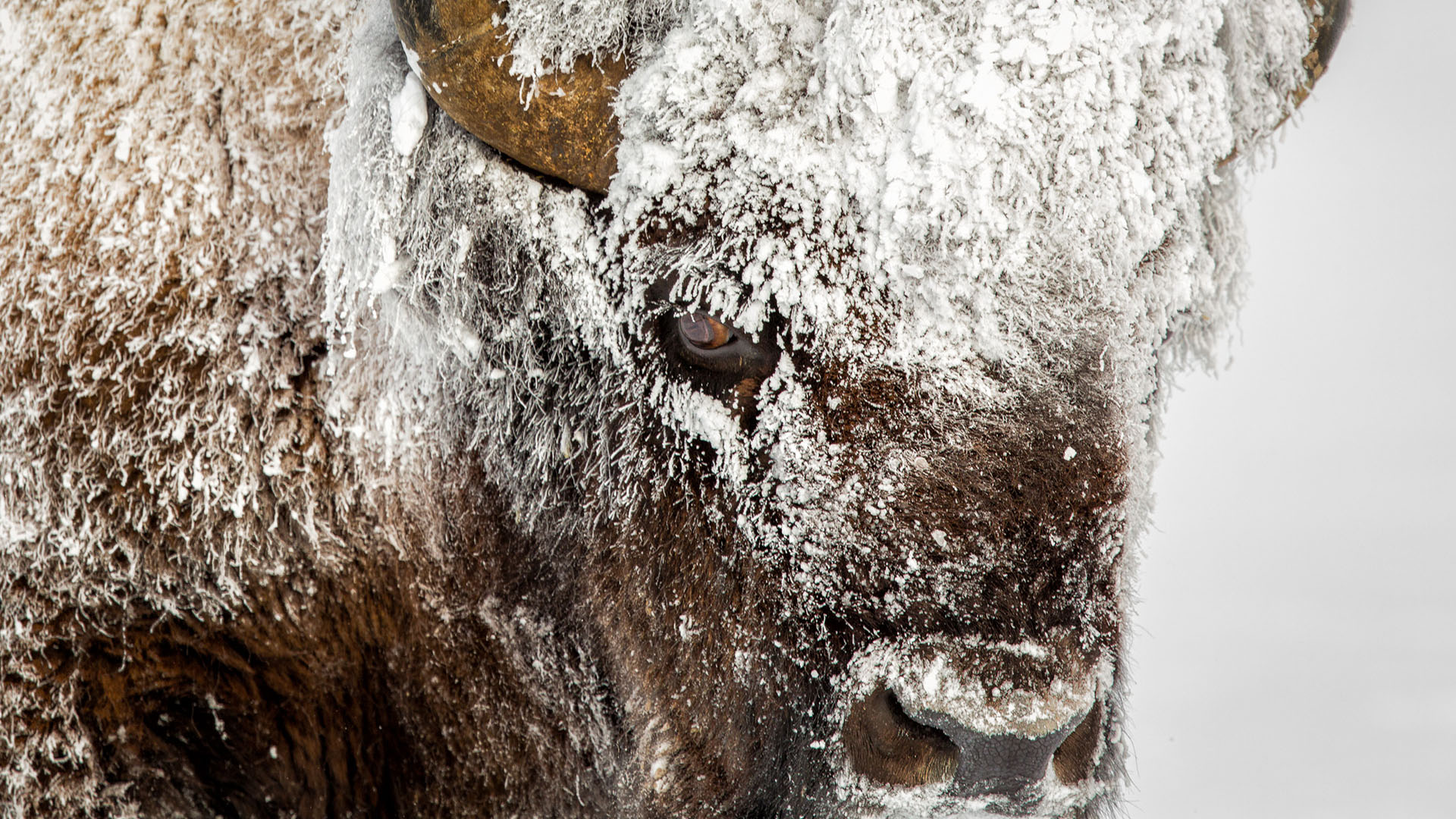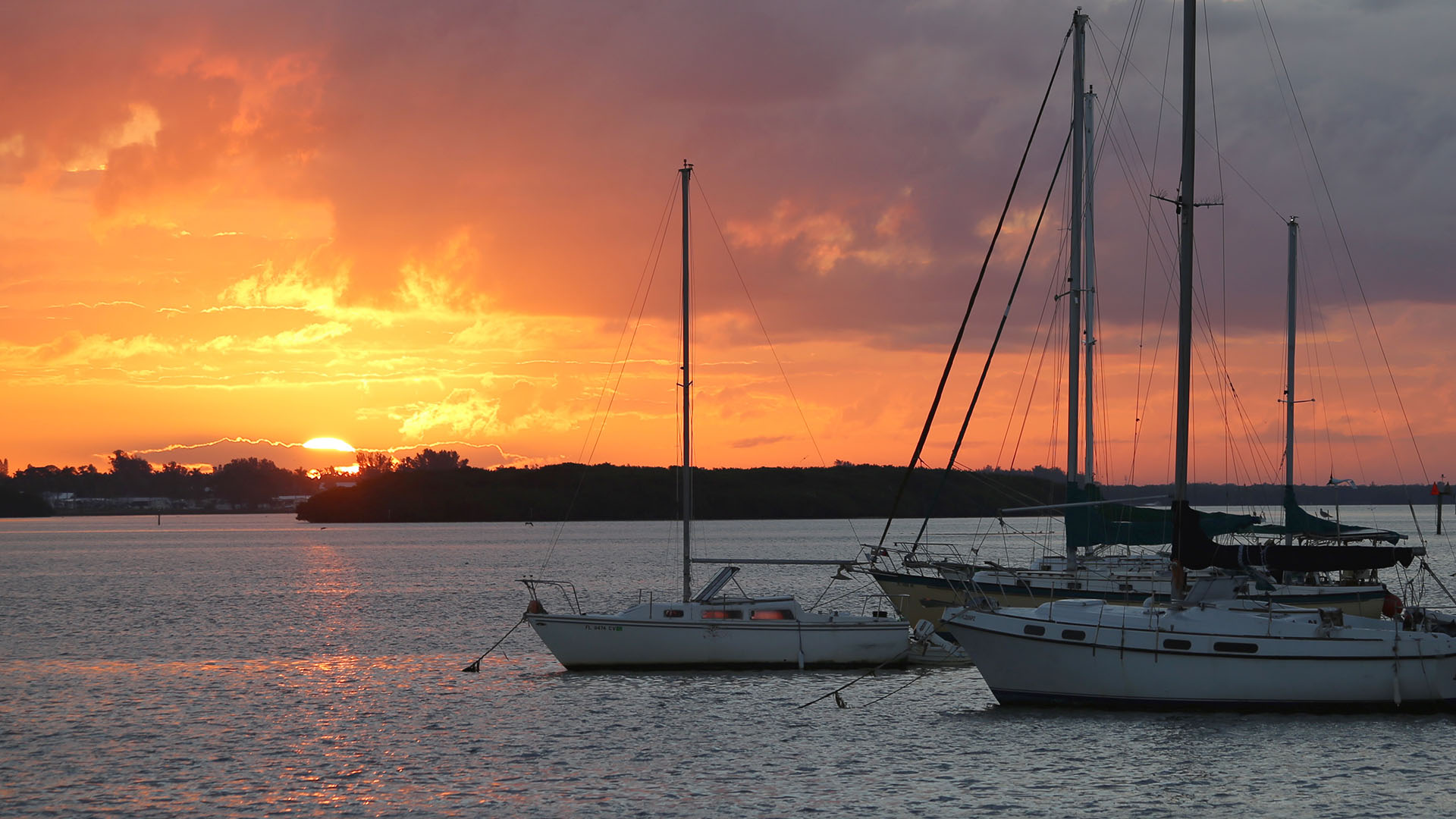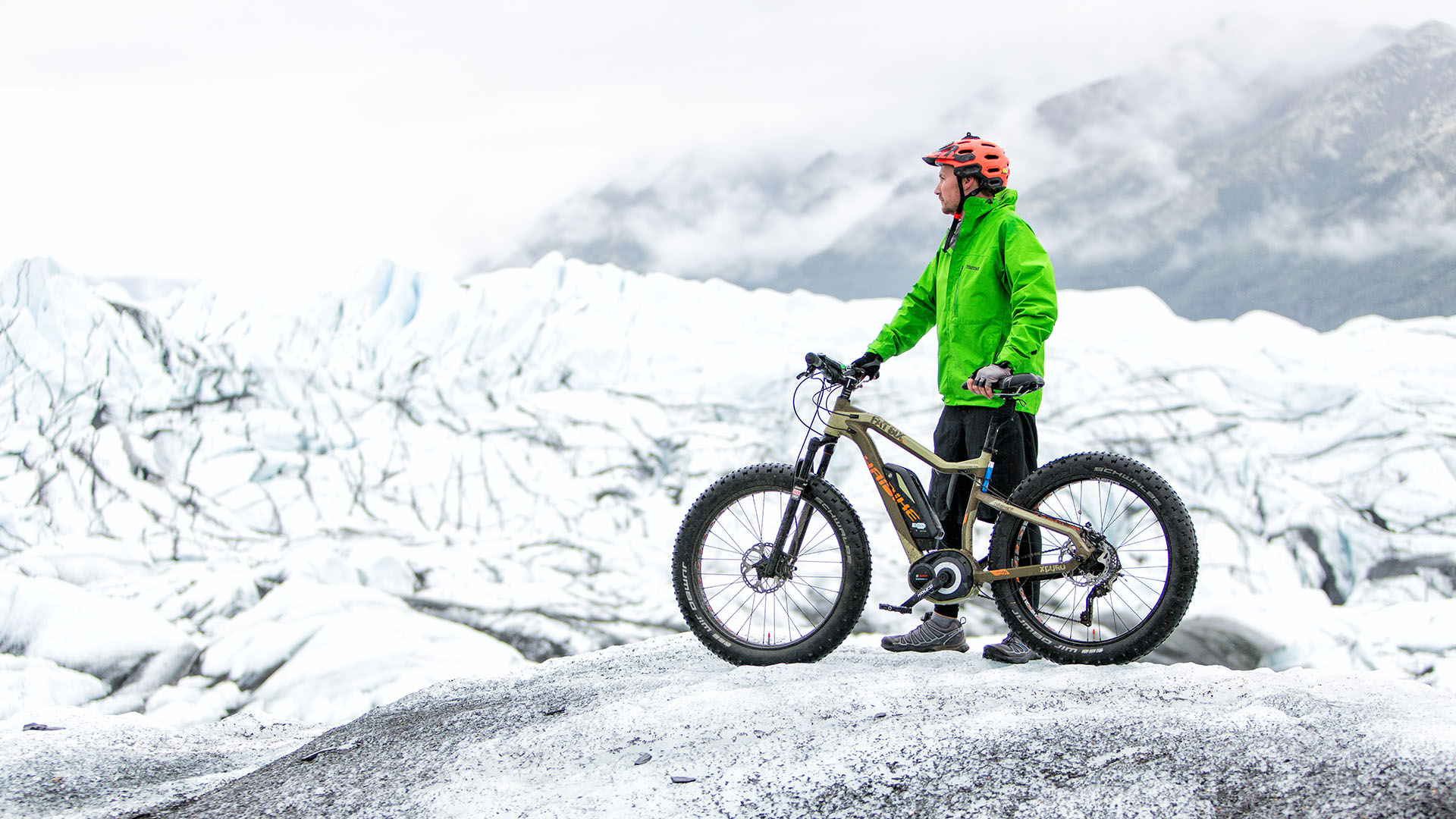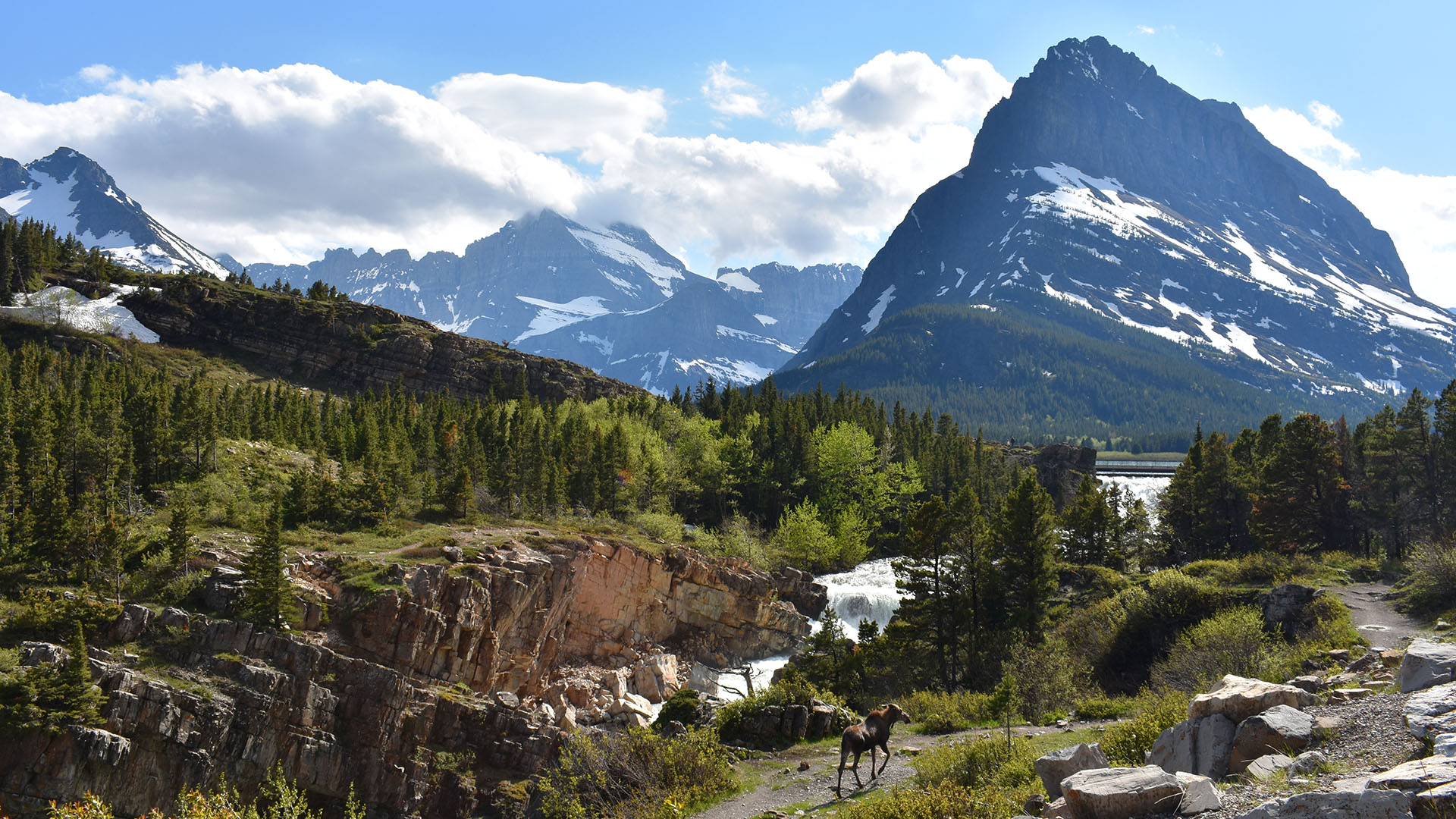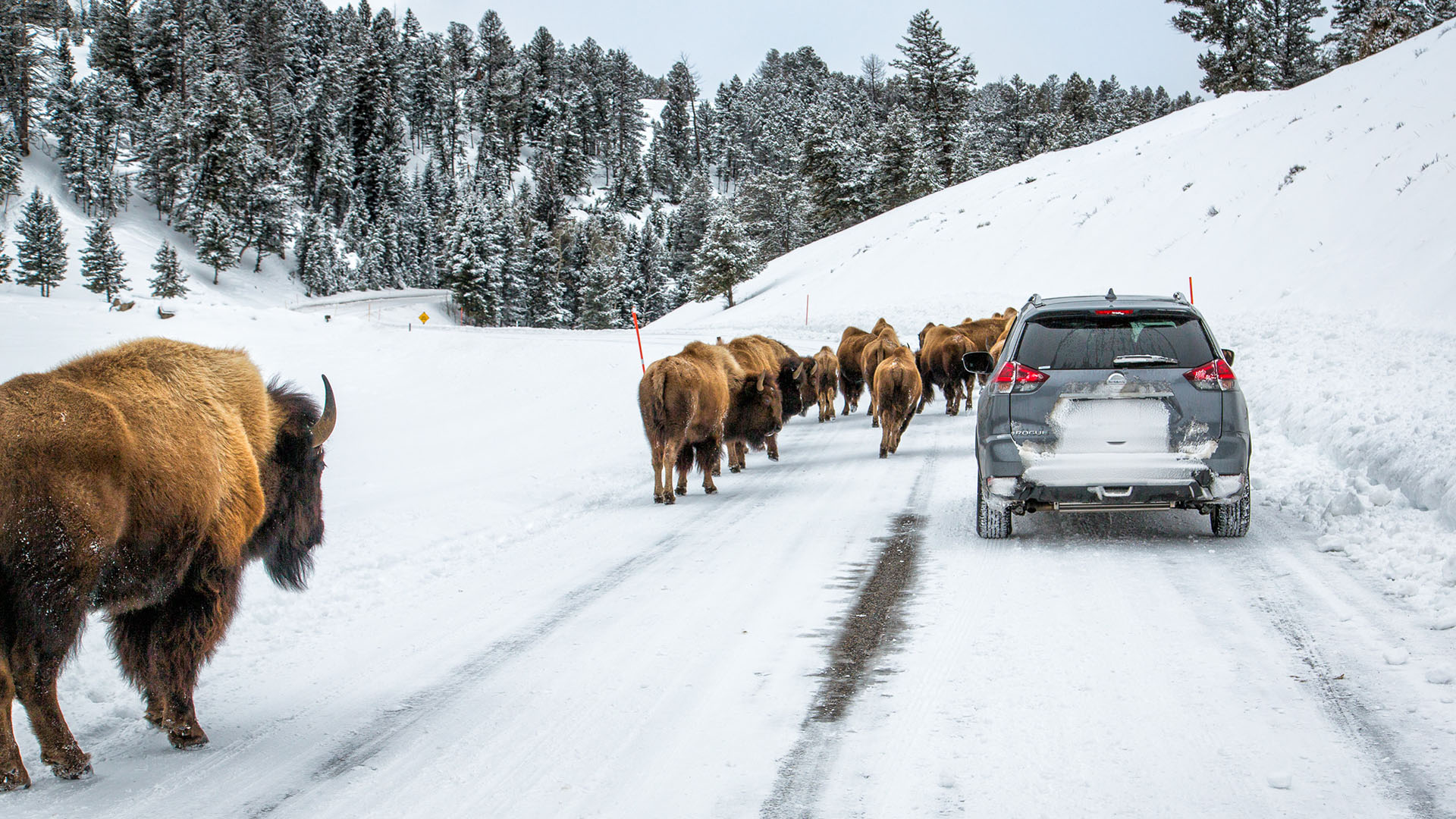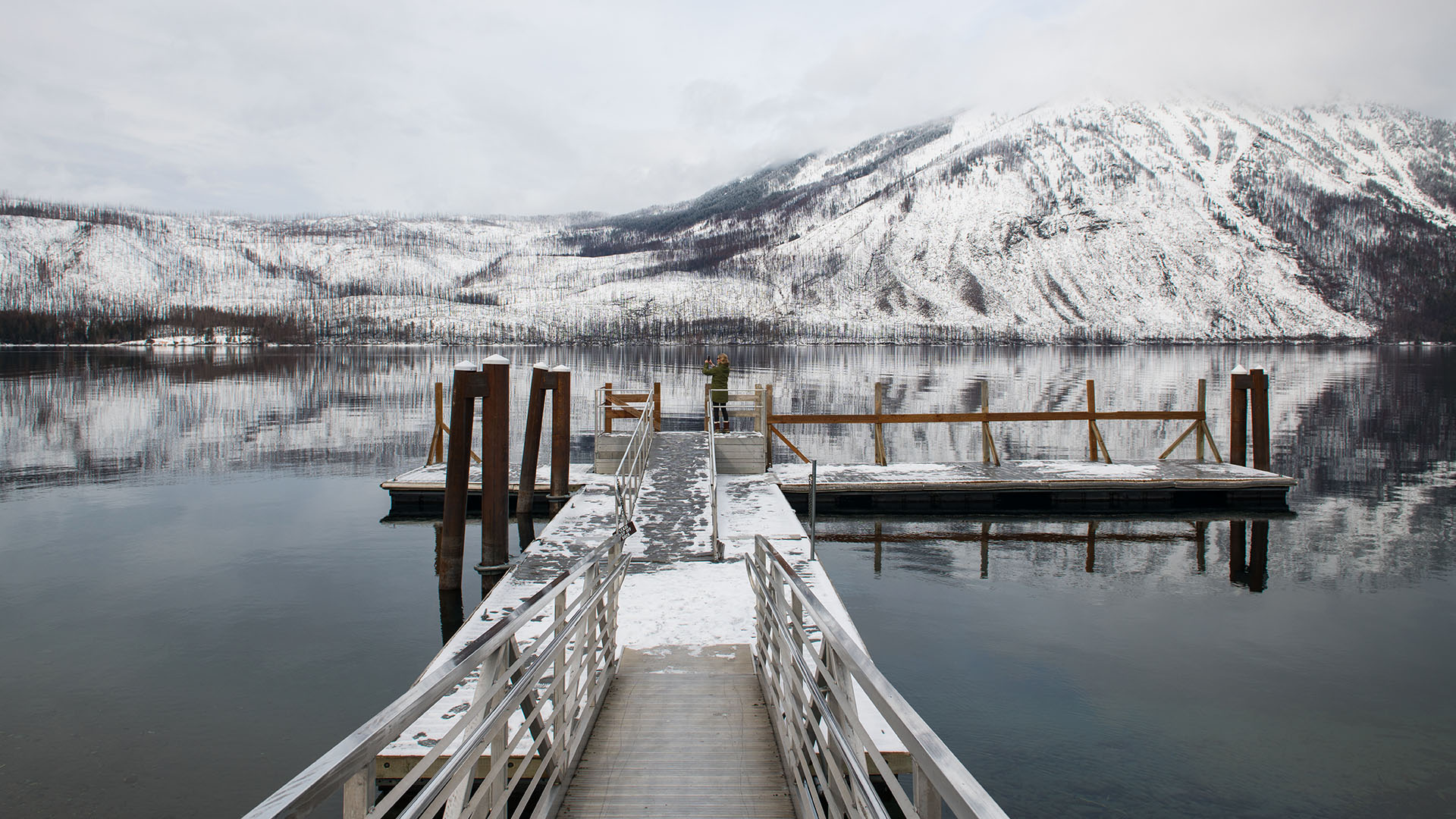Winter Wonderlands: 7 Road Trips in Our National Parks
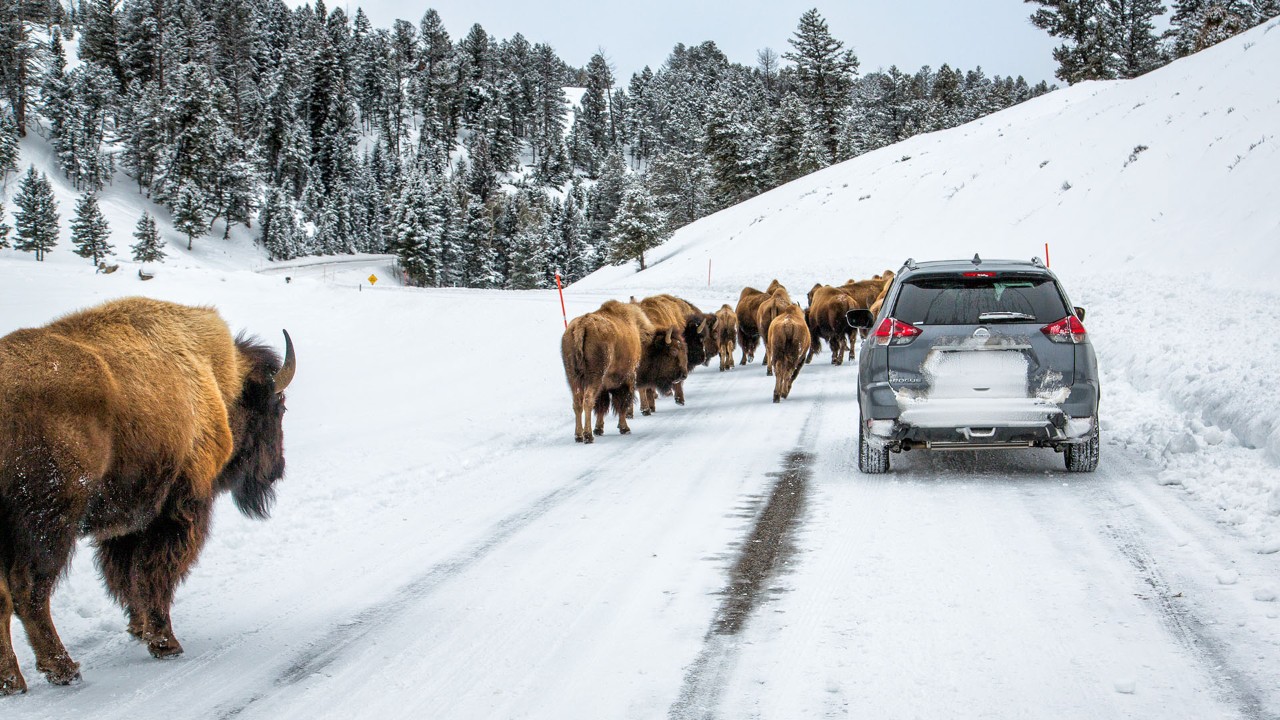
Bison walk along a road in Yellowstone National Park. Photo by Derek Jerrell
Story by Patricia Corrigan
Patricia is a journalist, photographer and book author based in San Francisco.
From A (Acadia) to Z (Zion), national parks offer ideal destinations for a weekend trip or longer vacation.
Pick a park, pack your bags and head out on one of our road-tested trips in Maine, Texas, Colorado, Tennessee, Wyoming, California or Utah. Whether you plan a romantic getaway for two, rent a four-wheel-drive vehicle with friends or travel solo, remember to check the park’s website for current weather conditions, chain requirements and route closures. Bonus: In winter, you’ll share these wilderness areas with smaller crowds than in any other season.
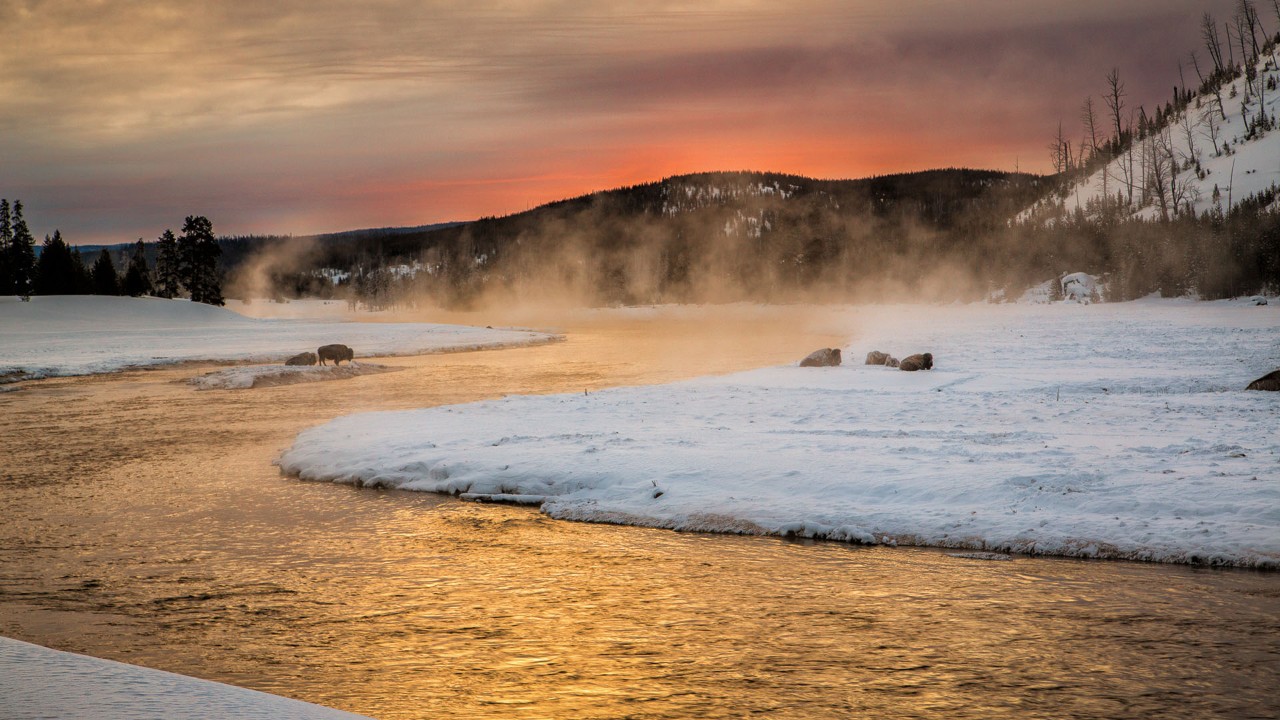
Bison gather at the Madison River during sunrise. Photo by Derek Jerrell
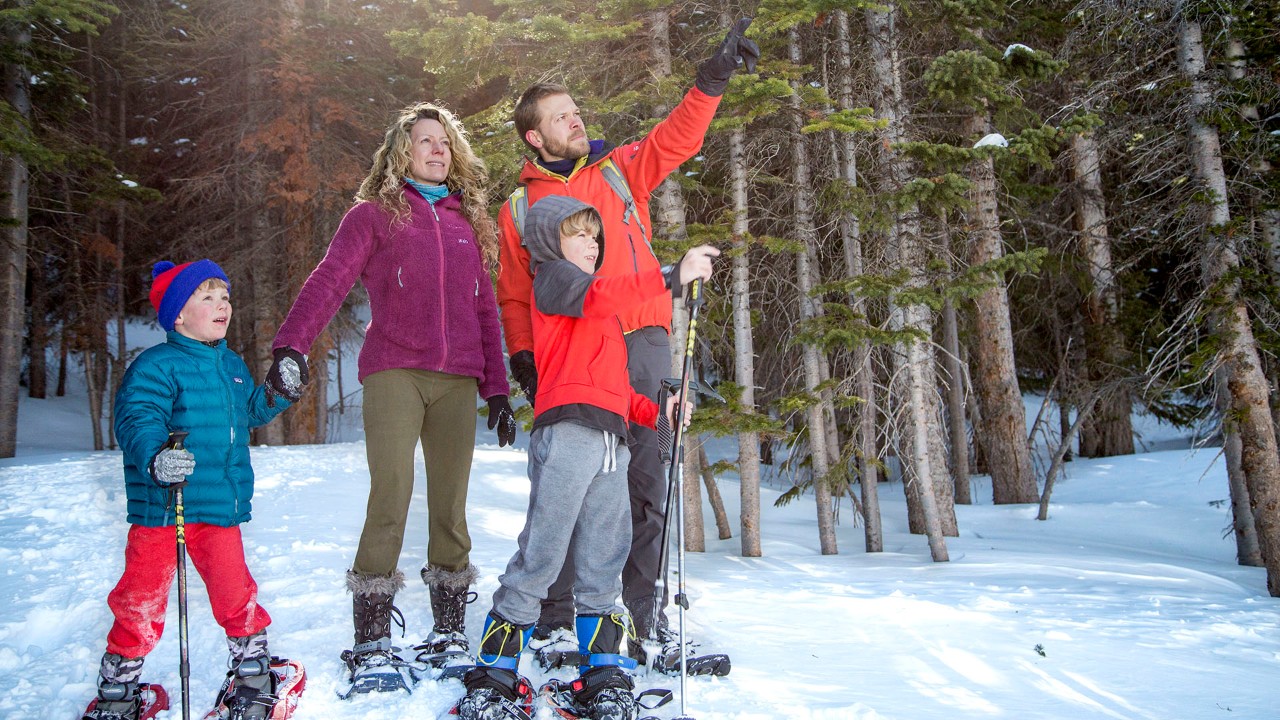
Theo, Melissa, Elijah and Joel Love snowshoe in Rocky Mountain National Park. Photo by Brad Clement
Acadia National Park
Situated on the Atlantic Coast in Bar Harbor, Maine, Acadia welcomes cross-country skiers and snowshoers in winter, when volunteers often lay down ski tracks along 45 miles of the park’s carriage roads. Snowmobiles are allowed on some sections of the 27-mile Park Loop Road, and ice fishing is available when weather permits. For scenic views of the park and Mount Desert Island, drive along Sargent Drive to Northeast Harbor and Route 102A to Bass Harbor Head Lighthouse.
Big Bend National Park
Tired of the cold in your town? In West Texas, it’s often 70 degrees during the day, though the temperature drops considerably at night. Bring layers to add or shed as you hike, bike and explore one of the largest, most remote and least visited of all 61 national parks. You’ll find splendid solitude here among the mountains, deserts and rivers. Big Bend is just a three-hour drive from the airport in Midland, Texas.
Great Smoky Mountains National Park
In winter, hiking enthusiasts and cross-country skiers are drawn to the most popular of the parks, where trails lead to icy waterfalls, remnants of past residences and even wildflowers, as purple hepaticas bloom in late winter. How’s the weather? On sunny days, the temperature can reach 65 degrees or stay stuck at 20 when it snows, though snow is rare at lower elevations. Bring layers so you’re prepared to explore on the 33-mile-long drive along the Newfound Gap Road through the park, which is situated on the border of Tennessee and North Carolina.
Rocky Mountain National Park
Snowshoeing, sledding, cross-country skiing, wildlife viewing — and occasional cups of hot chocolate — make for a memorable family winter vacation here. Rocky Mountain National Park is about a 40-mile drive from Boulder, Colorado, along U.S. Highway 36. The most popular entrance is the Beaver Meadows gate, just a few miles outside of Estes Park.
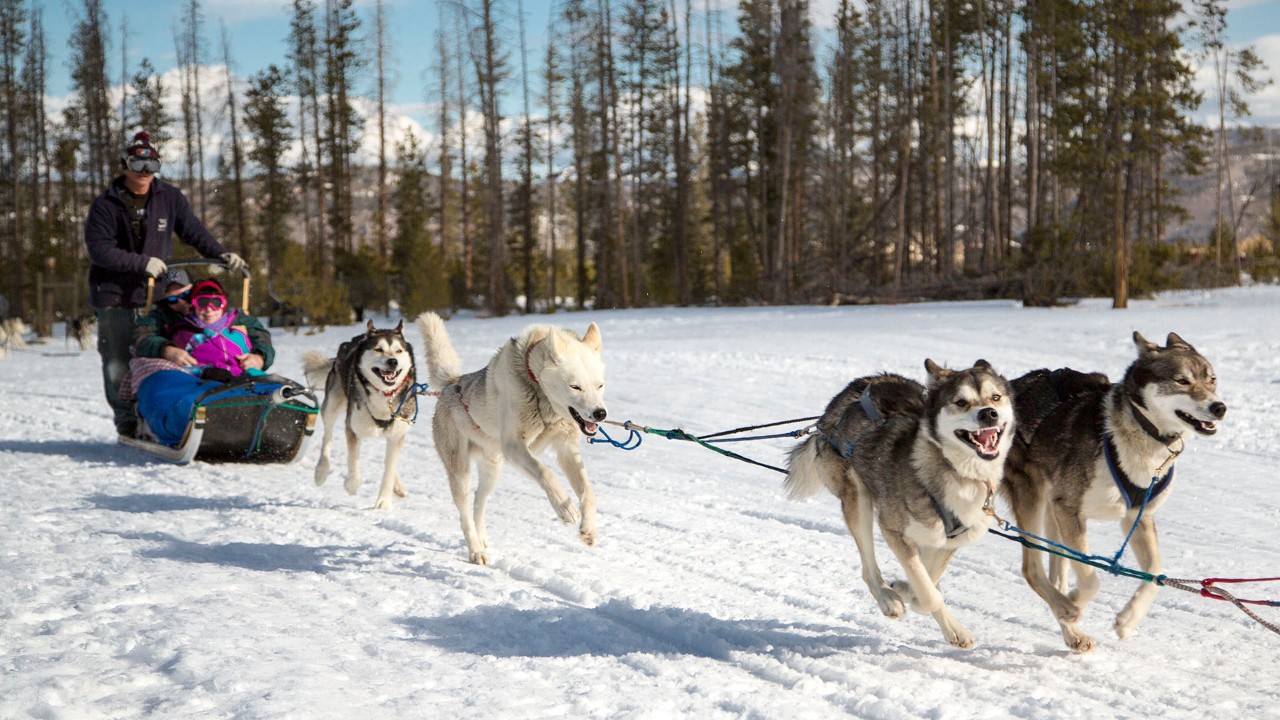
Dogsledding is a popular winter activity. Photo by Brad Clement
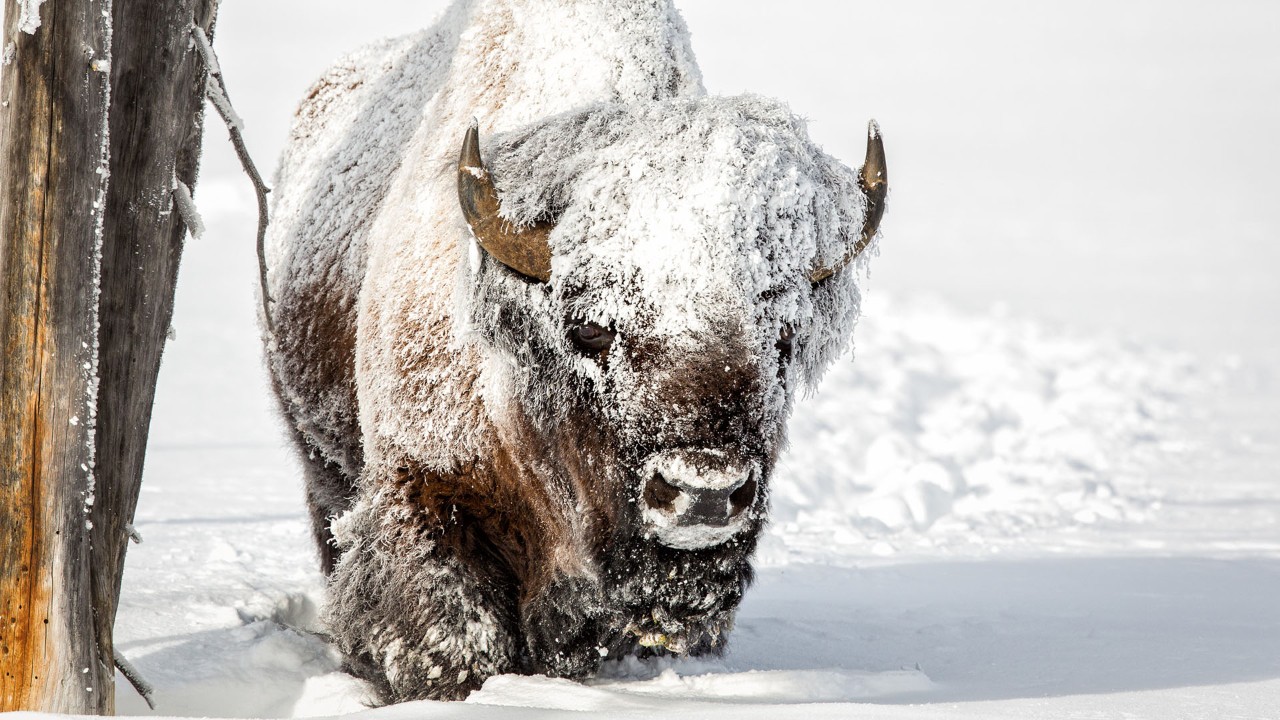
A frost-covered bison walks in the Lamar Valley at Yellowstone National Park. Photo by Derek Jerrell
Yellowstone National Park
Winter may be the peak wildlife-viewing season at this park, as bison, wolves, coyote and elk move to lower elevations in search of food and warmth. Yellowstone covers some 3,500 square miles in Wyoming, Montana and Idaho, but when the snow falls, the road between Mammoth Hot Springs and the northeast entrance is the only one open. Once you’re in the park, guided snowmobile and snowcoach tours are available.
Yosemite National Park
Downhill skis, cross-country skis, snowshoes and ice skates are the footwear of choice for winter visitors at Yosemite, in the Sierra Nevada Mountains of California. Just a four-hour drive from San Francisco, the park draws about 100,000 people a month in winter, compared to eight times as many in summer. Lucky visitors may see a “snow cone” — a mound of snow and ice hundreds of feet tall at the base of Upper Yosemite Falls — and slushy frazil ice on the Merced River.
Zion National Park
Peace among nature — expect that in Zion, where you’ll see steep red cliffs, sandstone canyons and forest trails along the Virgin River. Situated in southwest Utah, Zion is about a 3-hour drive on Interstate 15 from McCarran International Airport in Las Vegas. Storm watchers will rejoice because you can almost bet on rain, as nearly half of the annual precipitation here falls between December and March. Snow typically disappears within a matter of hours at lower elevations, but does accumulate at higher elevations.
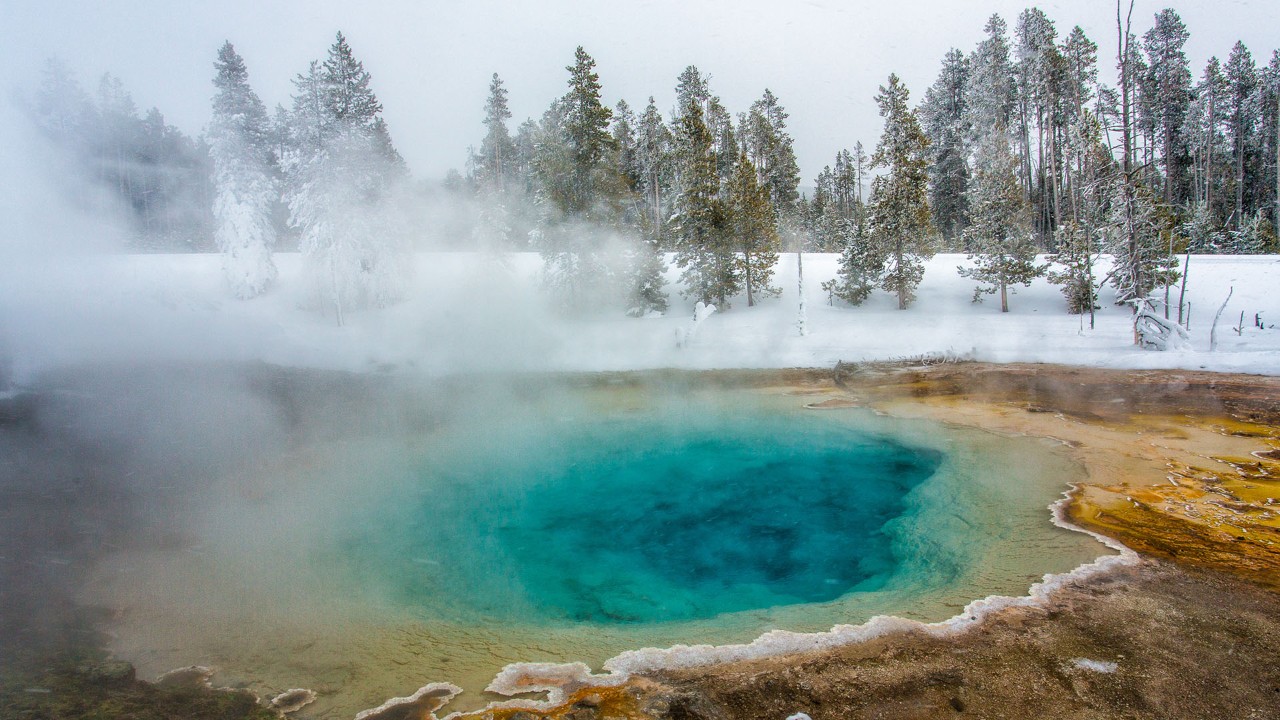
Silex Spring. Photo by Derek Jerrell
Related
Read more stories about winter destinations.
- Best Places to See Bald Eagles in the Midwest
- Weekend Getaway to Lincoln, New Hampshire
- Yellowstone National Park in Winter
- How and Where to Swim with Manatees in Florida
- Weekend Getaway to Great Ski Resorts Near Lincoln, New Hampshire
- Ski Gear in Lincoln, New Hampshire
- Road Trip to Maple Sugar Shacks in New England
- Cold Weather Photography Tips
- Road Trips to Escape Winter
- Cold Weather Destinations
- Road Trip to Montana’s Independently Owned Ski Areas
- Road Trips to National Parks in Winter
- Visiting Glacier National Park in Winter

